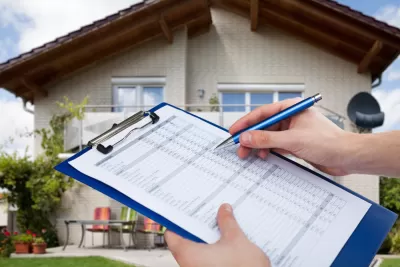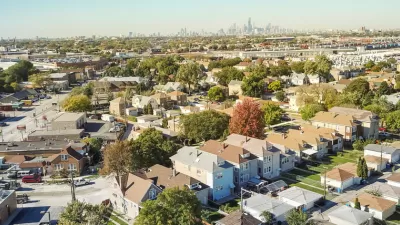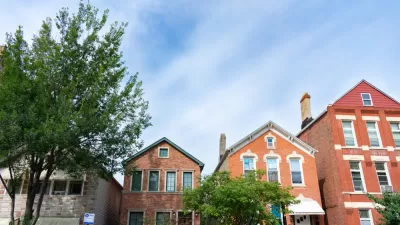An analysis of government data reveals a growing gap in the appraised values of homes in white and Black neighborhoods.

A new report highlights the racial gap in home appraisals, using recent government data to show that homes in predominantly white neighborhoods are assessed at, on average, twice as much as comparable homes in communities of color.
Writing in the Kinder Institute for Urban Research’s Urban Edge, Nancy Sarnoff outlines the results. “The report’s findings show that rather than improving over time, racial inequality in residential appraisals has worsened over the past decade,” with the discrepancy growing even faster during the pandemic. “By comparing similar homes in neighborhoods with the same socioeconomic status and comparable amenities, homes in white neighborhoods were valued $371,000 more than their counterparts in communities of color.” Sarnoff adds that “The neighborhood racial gap in appraised values increased by 75% — or $157,000 — from 2013 to 2021.”
This discrepancy makes a major impact on the ability of families to build equity and generational wealth. “A low appraisal can reduce a home’s market value and affect how much money a bank will lend on the purchase of that home.”
The report recommends two actions for addressing the gap: “reparations through targeted tax credits or stimulus programs and a new appraisal approach that does not rely on past sales.”
FULL STORY: New trove of federal data clearly shows a growing racial gap in home appraisals

Alabama: Trump Terminates Settlements for Black Communities Harmed By Raw Sewage
Trump deemed the landmark civil rights agreement “illegal DEI and environmental justice policy.”

Planetizen Federal Action Tracker
A weekly monitor of how Trump’s orders and actions are impacting planners and planning in America.

The 120 Year Old Tiny Home Villages That Sheltered San Francisco’s Earthquake Refugees
More than a century ago, San Francisco mobilized to house thousands of residents displaced by the 1906 earthquake. Could their strategy offer a model for the present?

In Both Crashes and Crime, Public Transportation is Far Safer than Driving
Contrary to popular assumptions, public transportation has far lower crash and crime rates than automobile travel. For safer communities, improve and encourage transit travel.

Report: Zoning Reforms Should Complement Nashville’s Ambitious Transit Plan
Without reform, restrictive zoning codes will limit the impact of the city’s planned transit expansion and could exclude some of the residents who depend on transit the most.

Judge Orders Release of Frozen IRA, IIJA Funding
The decision is a victory for environmental groups who charged that freezing funds for critical infrastructure and disaster response programs caused “real and irreparable harm” to communities.
Urban Design for Planners 1: Software Tools
This six-course series explores essential urban design concepts using open source software and equips planners with the tools they need to participate fully in the urban design process.
Planning for Universal Design
Learn the tools for implementing Universal Design in planning regulations.
Clanton & Associates, Inc.
Jessamine County Fiscal Court
Institute for Housing and Urban Development Studies (IHS)
City of Grandview
Harvard GSD Executive Education
Toledo-Lucas County Plan Commissions
Salt Lake City
NYU Wagner Graduate School of Public Service





























